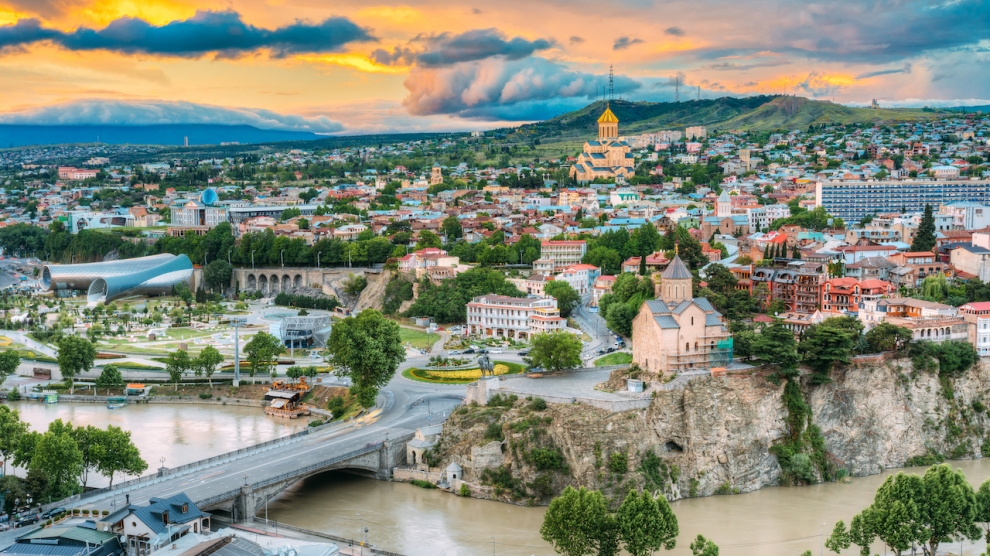Georgia is a beautiful country, blessed with a favourable location at the crossroads between Western Asia and Eastern Europe. Bordering Armenia, Azerbaijan, Russia and Turkey and with access to the sea, Georgia has good transportation links with the entire region and beyond, and it enjoys a free trade agreement with Turkey and the CIS countries as well as an Association Agreement with the EU.
Georgia has progressed immensely over the last two decades. The country undertook significant changes to eradicate crime and corruption, to reform the state administration and to adopt a market economic model. As a result, Georgia has become the top reformer in the wider region, according to EBRD and the World Bank rankings, as well as the Index of Economic Freedom by the US think tank Heritage Foundation. The Association Agreement and the Deep and Comprehensive Free Trade Agreement with the EU marked a further step towards integration and successful development.
These agreements and the prospects of free trade with the EU offer unique opportunities for Georgia’s economy. The country is progressing down this ambitious path in order to reap the benefits and realise the full potential of the economy by accelerating reforms, strengthening institutions and improving the investment climate.
These economic reforms are supported by ambitious plans for achieving a more equal income distribution, for developing human capital and skills, reducing unemployment and providing stability and sustainable development.
A third wave of reforms in Georgia focuses on strengthening institutions, developing the infrastructure, encouraging competition and adopting international best practices in all areas of economic development. The EU Association Agreement serves as framework, roadmap and timeline for these structural reforms; the implementation will require persistence and determination, but the results will justify the effort.
The future of Georgia relies on strengthening its human capital, on adopting and embracing new technologies and on developing its technological standards. Georgia needs to make the most of its fertile land and improve its agricultural yields, to develop further the hospitality sector, nurture its small and medium-sized enterprises and to consolidate the development of essential sectors such as banking.
The EBRD plays a key role in the development of Georgia. We have invested more than €2.3 billion in the country since the start of operations 25 years ago. This represents one of the largest investments per capita in all the EBRD countries. We have successfully supported the development of the banking sector; the development of the renewable energy sector, with significant hydro investments and the growth of the private sector, while encouraging foreign investments. We have complemented our financial support with technical assistance in order to strengthen skills and with policy dialogue.
The EBRD’s priorities in Georgia are developing the competitiveness of the private sector through innovation, enhancing value-add and convergence with DCFTA standards and deepening financial intermediation as well as developing local currency and capital markets. Another priority for the bank is expanding markets, through inter-regional connectivity; expanding Georgia’s potential as a regional link, through a modernisation of the country’s infrastructure; while supporting renewable energy, resource efficiency and climate change adaptation.
The EBRD is actively engaged in promoting the local currency lending and supporting the de-dollarisation of the Georgian banking system and economy. In early 2014, we were the first international financial institution to issue a bond in Georgian Lari, followed most recently by the second Lari bond. This was an important step in strengthening the local currency, increasing confidence in the local market, diversifying sources of funding and developing the local capital market.
In the energy sector, the EBRD was instrumental in assisting Georgia in becoming an electricity exporting country. While Georgia has no oil and gas resources, it is blessed with abundant sources of renewable energy: high mountains, rivers, wind and sunshine. Over the years, we have financed several strategic projects in the energy sector such as the rehabilitation of the Enghuri hydro power plant, the first private hydro power plant Paravani and the Black Sea Transmission Line.
This piece is part of the EBRD 2017 Annual Meeting and Business Forum special report, prepared together with the European Bank for Reconstruction and Development. To register for the event, click on the banner below.
_______________
The views expressed in this opinion editorial are the author’s own and do not necessarily reflect Emerging Europe’s editorial policy.







Add Comment